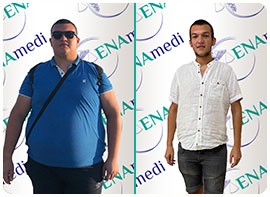Contact
- Osmaniye mah. Osmaniye mektebi sok. No:27/B Bakırköy/İSTANBUL TÜRKİYE
- [email protected]
-
+90 212 916 1 362
SYMPTOMS OF TYPE-2 DIABETES
Although the symptoms of Type-2 Diabetes are quite many, they can be in your body for a long time without drawing your attention. These symptoms progress very slowly, so even if you've had type 2 diabetes for years, you may still have not realized it. The symptoms listed below are of great importance:
Increased thirst
Frequent urination
Increased feeling of hunger
Weight gain or weight loss
Fatigue
Blurred vision
Non-healing wounds
Frequent infections
Tingling and numbness in the wrists and feet
Recurrent fungal infections
Formation of dark-colourd areas on the skin, usually in the armpits and neck
WHO IS AT RISK OF TYPE-2 DIABETES?
Obesity patients, namely those who are overweight, those with poor food habits, those who adopt a sedentary lifestyle (those who do not exercise), those with a family history of diabetes, those who developed diabetes during pregnancy or those who gave birth to a baby weighing more than 4.5 kg, as well as those who experience long-term stress are included in the group that has a higher risk of Type 2 diabetes.
WHAT CAUSES DIABETES?
The pancreas produces a hormone called insulin. Insulin enables the glucose taken from food into the body to be converted into energy in the cells. Insulin is also produced in individuals with diabetes, but the cells do not use insulin as it should be, as in healthy individuals. Physicians call this insulin resistance.
Although, in the beginning, the pancreas produces more insulin to carry glucose into the cells, it cannot keep on doing this over time and the level of glucose in the blood begins to rise.
The reason for this condition is not known exactly, but genetic and environmental factors such as being overweight and having a sedentary life style are among the causes leading to insulin resistance to a large extent.
IS TYPE-2 DIABETES A TREATABLE DISEASE?
In type 2 diabetes, the treatment to be administered to the patient is decided by our physicians depending on the progress and extent of the disease as well as assessing the other diseases of the patient so that it include programs aiming to change the person's lifestyle (food habits and exercise program), medication or surgical methods. If medical treatment is thought to be sufficient, surgical treatment may not be considered appropriate by our physicians. However, given the ratio of type-2 diabetes patients, the patient group for whom surgical methods are suitable is higher.
WHY IS SURGICAL TREATMENT MORE PREFERRED?
It is critical to prefer a surgical option in the treatment of type 2 diabetes. This is because conventional medical treatment methods and medications do not cure the disease, but keep the disease under control and help the patient get used to living with this disease. However, surgical treatment applied to patients who meet the criteria required for surgical treatment provides definitive results for type 2 diabetes. At the same time, surgical treatment is also effective in the elimination of other diseases associated to type 2 diabetes, and in this context, it ensures patients to live longer.
FOR WHOM IS SURGICAL TREATMENT SUITABLE?
We have mentioned earlier that surgical treatment is not suitable for every diabetic patient. First of all, the patient should have type-2 of diabetes. However, as a result of the fact that the person has been suffering from type 2 diabetes for years, insulin produced by the body may not be sufficient for surgical treatment. For this reason, insulin level in the pancreas should be measured before surgical treatment. Insulin level is checked with a blood test. On the other hand, the weight of the patients is also very important. In this context, the body mass index of the patient should also be appropriate for surgical treatment. In order to be eligible for surgical treatment, a patient needs to have a body mass index of 35 and above. However, patients who do not respond to conventional methods of medical treatment and whose body mass index is 30 and above can also be treated with surgery. Another criterion for eligibility for surgical treatment is that type 2 diabetes is not too advanced. The insidious progression of type 2 diabetes depletes insulin reserves, resulting in many damages such as organ and vascular damages. Successful results are obtained with appropriate treatment and surgical procedure by recognizing the patient before the insulin reserves deplete.
WHAT IS TYPE-2 DIABETES SURGERY AND HOW IS IT PERFORMED?
The aim of diabetes surgery is to eliminate insulin resistance in the body. Thus, the amount of hormones is increased. In case of diabetes mellitus Type 1, the treatment is insulin. For type 2, a change of lifestyle, diet, medication, and surgery, if organ damage has started afterward, should be way to be followed.
Diabetes surgery is performed in those with Type 2 diabetes, those with obesity, those with high blood sugar, and when blood sugar cannot be maintained within the limits in spite of the medication and insulin used. Diabetes surgery is performed as a closed surgery. Surgery is performed through incisions. 50% of the stomach is removed and the location of the small intestine is rerouted. With this change, a stimulus for insulin secretion comes from the pancreas and activity increases. Thus, Type 2 diabetes is completely eliminated. And individuals get rid of obesity after this surgery. The advantages of this surgery includes not being as painful as open surgeries, not experiencing lung problems, returning to normal life in a shorter time, and no scar left.
WHAT SHOULD PATIENTS EXPECT AFTER DIABETES SURGERY?
After the diabetes surgery, patient will not feel hunger frequently as before. He/she will face with the situation of not eating due to lack of appetite. These problems are transient, and when the body gets used to this normal routine, the patient will feel much better. Plenty of water should be drunk after diabetes surgery. The body is hungry for water. Water consumption is important, as being off both food and water will make the patient fall loosely. The eating habits will be under the control of the doctor for about 6 months after the surgery, and even a smallest deviation will cause the diabetes to come back. For this reason, diabetes surgery is a unique gift sent from heaven for a diabetic patient.








